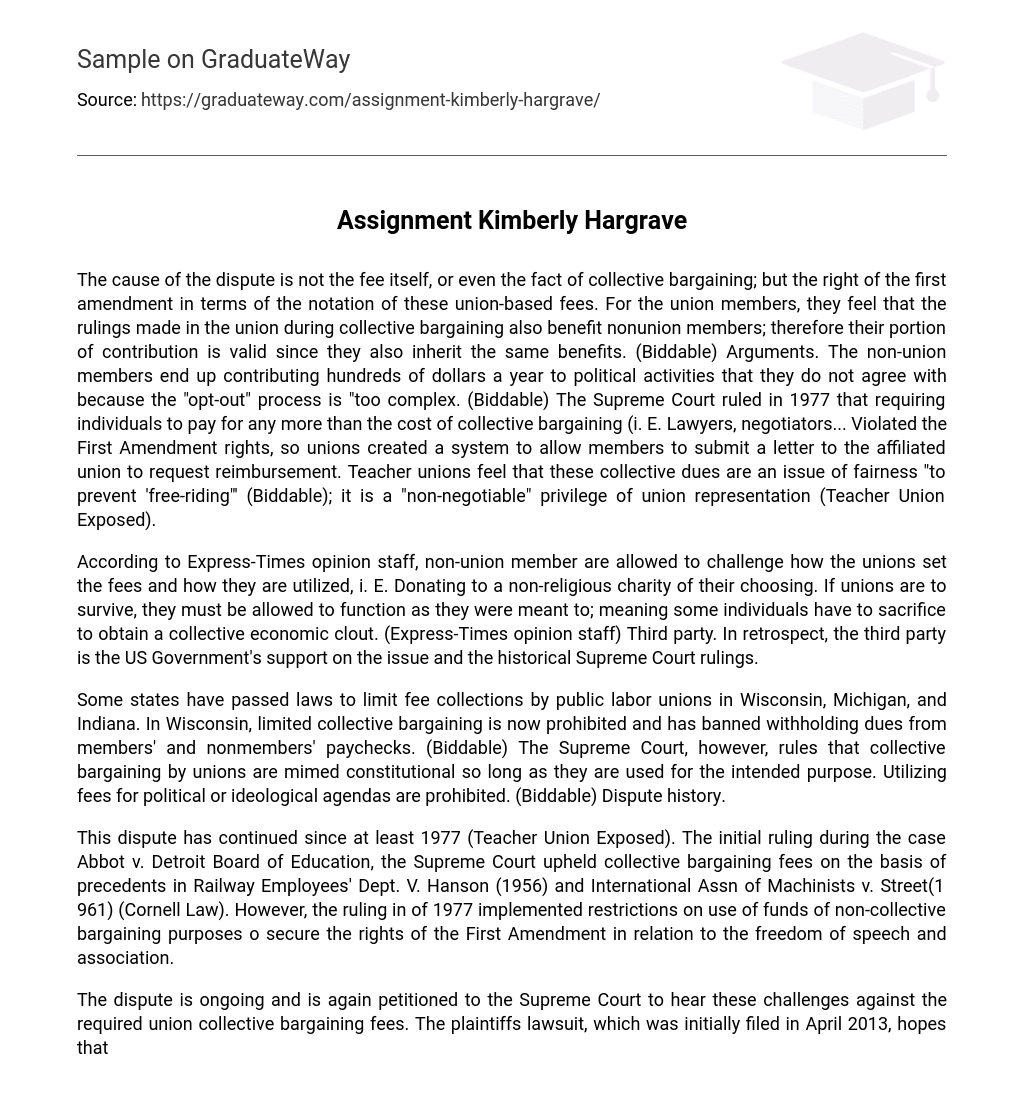The cause of the dispute is not the fee itself, or even the fact of collective bargaining; but the right of the first amendment in terms of the notation of these union-based fees. For the union members, they feel that the rulings made in the union during collective bargaining also benefit nonunion members; therefore their portion of contribution is valid since they also inherit the same benefits. (Biddable) Arguments. The non-union members end up contributing hundreds of dollars a year to political activities that they do not agree with because the “opt-out” process is “too complex. (Biddable) The Supreme Court ruled in 1977 that requiring individuals to pay for any more than the cost of collective bargaining (i. E. Lawyers, negotiators… Violated the First Amendment rights, so unions created a system to allow members to submit a letter to the affiliated union to request reimbursement. Teacher unions feel that these collective dues are an issue of fairness “to prevent ‘free-riding”‘ (Biddable); it is a “non-negotiable” privilege of union representation (Teacher Union Exposed).
According to Express-Times opinion staff, non-union member are allowed to challenge how the unions set the fees and how they are utilized, i. E. Donating to a non-religious charity of their choosing. If unions are to survive, they must be allowed to function as they were meant to; meaning some individuals have to sacrifice to obtain a collective economic clout. (Express-Times opinion staff) Third party. In retrospect, the third party is the US Government’s support on the issue and the historical Supreme Court rulings.
Some states have passed laws to limit fee collections by public labor unions in Wisconsin, Michigan, and Indiana. In Wisconsin, limited collective bargaining is now prohibited and has banned withholding dues from members’ and nonmembers’ paychecks. (Biddable) The Supreme Court, however, rules that collective bargaining by unions are mimed constitutional so long as they are used for the intended purpose. Utilizing fees for political or ideological agendas are prohibited. (Biddable) Dispute history.
This dispute has continued since at least 1977 (Teacher Union Exposed). The initial ruling during the case Abbot v. Detroit Board of Education, the Supreme Court upheld collective bargaining fees on the basis of precedents in Railway Employees’ Dept. V. Hanson (1956) and International Assn of Machinists v. Street(1 961) (Cornell Law). However, the ruling in of 1977 implemented restrictions on use of funds of non-collective bargaining purposes o secure the rights of the First Amendment in relation to the freedom of speech and association.
The dispute is ongoing and is again petitioned to the Supreme Court to hear these challenges against the required union collective bargaining fees. The plaintiffs lawsuit, which was initially filed in April 2013, hopes that the Supreme Court would overturn their initial ruling and favor the nonunion members their completely expressive right to the First Amendment. What if? The dispute has gone to the Supreme Court once again on the basis of preserving the rights of the First Amendment. However, this dispute on elective bargaining appears that it could be handled on a local level: the union.





